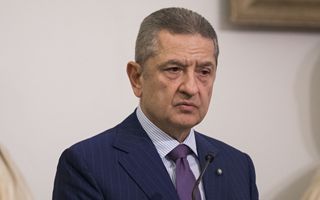(Finance) – The Governor of the Bank of Italy, Fabio Panettarecalled that “the poorest countries are facing the greatest difficulties and 700 million people around the world are still trapped in extreme poverty. It is our duty to help them overcome challenges and build a more equitable future.” In his speech at the 110th meeting of Development Committee from the World Bank and of International Monetary Fund in Washington DC, Panetta stressed that the World Bank’s International Development Agency, “as the largest international development fund in the world”, has a great responsibility to help low-income countries get back on the road to recovery and sustainable growth, as well as to escape from conflicts, poverty and deprivation”.
“This year – the Governor recalled – marks the anniversary of the institutions of Bretton Woods. In this turbulent time, their mission is more important than ever. Together they must promote growth, create jobs, increase stability, build resilience, fight against poverty and reduce the inequalitiesall while facing huge challenges global: climate change, fragility, mass migration, pandemics and risks deriving from new technologies and demographic trends”.
“We believe – declared Panetta – that the World Bank Group (WBG), the International Monetary Fund (IMF) and the broader system of multilateral development banks (MDBs) should pursue this complex mission in a cooperative manner, leveraging their respective advantages comparative. In this regard, we greatly appreciate the Development Committee’s paper, “The World Bank Group Ready for the Future”, for its comprehensive report on what has been achieved under the evolution of the WBG, launched in October 2022″.
The Governor then praised the World Bank “for the progress made in improving its model operating And financial to better serve all its customers, with particular attention to the poorest and most vulnerable. It demonstrates an impressive amount of work that is reshaping and renewing the organization with an eye to strengthening partnership and collaboration within the WBG and with others Multilateral development banks (Mdb)”.
“Our voting group continues to support a monitoring and one reporting improved impact of WBG operations, incorporating better data, impact assessment and lessons learned from past experiences – continued Panetta, speaking on behalf of the Constituency represented by Albania, Greece, Italy, Malta, Portugal, San Marino and Timor East –. We will continue to ensure that impact and accountability anchor any reforms in operational efficiency and effectiveness.”
“The measurement standards improvements in the 22 indicators of the new WBG Scorecard – he added – are particularly welcome and we look forward to further improvements”https://www.Finance.it/DettaglioNews/175_2024-10-25_TLB/.”One of the most important thing that the WBG can provide is knowledge – underlined Panetta –. It is beneficial for all countries and is necessary to increase the impact of flows financial on development. To this end, we strongly support the newly developed Knowledge Compact and the new ones Knowledge Hubsdesigned to facilitate the flow of skills and lessons learned around the world.”
“We congratulate management on further achievements in implementing the revision of G20 Capital Adequacy Framework (CAF), launched under the Italian presidency of the G20, which increased the capacity of financing IBRD up to $150 billion over the next decade,” he added.
